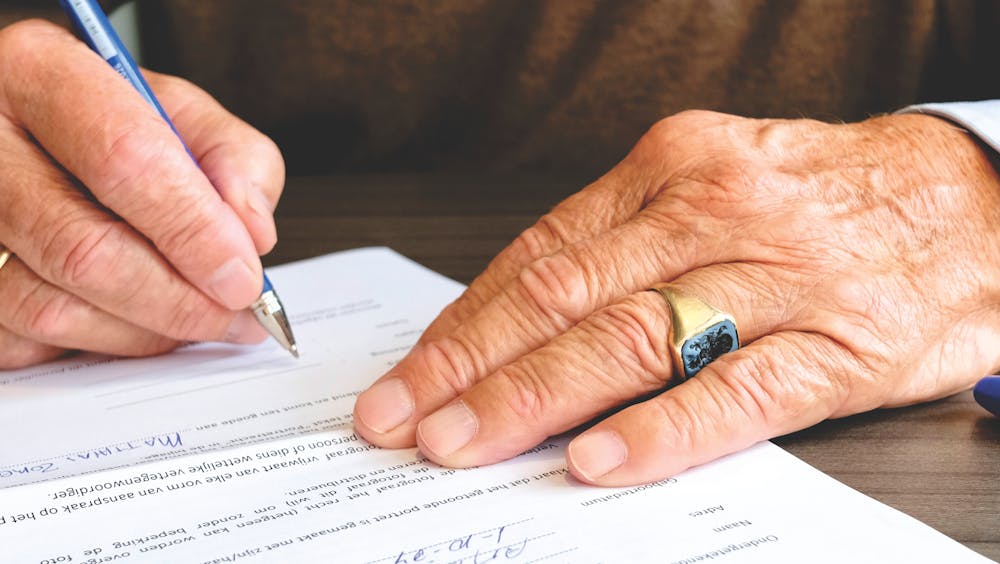
Whether you’re signing your first mortgage, setting up legal documents for the future, or handling corporate documents, understanding what notarization involves is crucial for ensuring your transactions are secure and legally binding.
What is Notarization Anyway?
Notarization might seem complex, but it’s fundamentally about ensuring authenticity and preventing fraud. Here’s a straightforward breakdown of what happens during notarization and why it matters.
The Three Big Steps in Notarization:
- Checking ID: The first step is verifying the identity of the person signing the document. I check a valid ID like a driver’s license or passport to make sure they are who they claim to be.
- Watching the Signing: I personally observe each signature to confirm it’s made willingly and by the right person.
- Stamping and Sealing: I then stamp the document with my notary seal, officially notarizing it. This seal is your assurance that all checks have been made.
Legal Boundaries:
- Not Legal Advice: It’s crucial to remember that as a notary, I do not provide legal advice or opinions about the contents of your documents.
- Not Validation of Content: My seal means the signature is verified, not that the content within the document is accurate or truthful.
The Legal Framework: Notaries in New York
New York State law governs notarial duties to ensure integrity and prevent fraud. Here’s how it shapes what I do:
Legal Authority and Responsibilities:
- State Laws: Notaries in New York operate under specific state laws, including the New York State Executive Law, which outlines our duties and the legal framework within which we operate. New York State Notary Public License Law provides detailed guidance.
- Regular Training: Unlike “notarios” in Hispanic countries who may have extensive legal training akin to attorneys, notaries in the U.S. have focused training primarily on the procedural aspects of notarization.
Digital and Remote Notarization:
- Adapting to Technology: Recent changes in laws have accommodated the growing need for remote and electronic notarization, especially highlighted during the COVID-19 pandemic. These methods are legally recognized in New York, provided they meet specified security standards to protect all parties involved.
Common Documents That Need Notarization
Several documents typically require notarization to ensure they are legally effective. Here are a few examples:
- Real Estate Transactions: Deeds, mortgages, and refinancing documents.
- Estate Planning: Wills, trusts, and advance directives.
- Business Agreements: Contracts and corporate documents.
Preparing for Notarization:
- What to Bring: Always come prepared with a valid, government-issued photo ID and all parties who need to sign the document.
- Signing: Remember, do not sign the document beforehand. The signing needs to be witnessed by me to be notarized.
Enhancing Public Understanding and Trust
Understanding the role of notarization and the legal parameters within which notaries operate is vital. This knowledge helps prevent fraud and ensures that legal documents are executed properly. For further information or to verify the authenticity of a notary, you can visit the New York Department of State’s website.
Notarization plays a crucial role in maintaining the integrity of important documents in New York. By ensuring you understand the process and legal standards, we can all help prevent fraud and ensure transactions are conducted properly and legally. If you ever need a document notarized or have questions about the process, feel free to reach out. Stay informed and ensure your transactions are secure! Thank you for reading, and remember, your awareness is key to maintaining the legality and integrity of important life events.
You might be interested in learning more about the history and significance of notarization by exploring the Notary Public article on Wikipedia. Additionally, understanding the specific laws and regulations in New York related to notarization can be crucial, so you may want to check out the Law of New York page for more information. And for those curious about the recent advancements in digital and remote notarization, the Electronic Signature article can provide further insight. Stay informed and continue expanding your knowledge on this important topic!